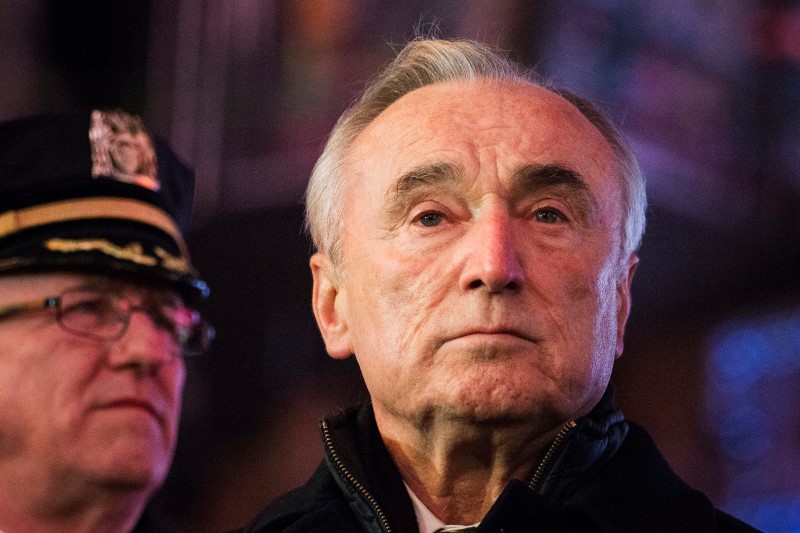New York City police commissioner Bill Bratton stepped down from his post on Friday, and gave a parting snub to his critics in a New York Times op-ed.
“There are police reformers from outside the profession who think that changing police culture is a matter of passing regulations, establishing oversight bodies and more or less legislating a new order. It is not,” Bratton wrote.
“Such oversight usually has only marginal impact. What changes police culture is leadership from within.”
The argument contrasts with that of many police reform advocates, who argue that independent watchdogs and externally hired leaders are necessary to implement systemic change and overturn toxic cultures within departments.
“If police departments could reform themselves from within, we wouldn’t be in a national crisis of police abuse and lack of accountability of which New York is ground zero,” Monifa Bandele of Communities United for Police Reform told Business Insider in a statement.
Reformers in Chicago, for instance, have fiercely criticized Mayor Rahm Emmanuel for failing to establish a police oversight board that stands fully independent from both the police force and city hall.
Some police departments, such as the one in Commerce City, CO, have even begun to embrace federal oversight in recent years, requesting external reviews from the Department of Justice and ratifying decrees that aim to rein in excessive use of force and racially biased tactics. Baltimore is the most recent such city to promise a sweeping overhaul of its police department after a damning DOJ report documented "systemic deficiencies" and a pattern of unconstitutional policing.
In place of external oversight, Bratton touted reforms that have already begun to take effect within the NYPD, including its new "neighborhood-based policing" program that calls for a closer working relationship between officers and the communities they patrol.
"By localizing police service, we are breaking down barriers and building trust with truly productive partnerships," Bratton wrote. "We are also changing the police culture by orienting the daily work of officers toward service and communications."
Local activist groups have already slammed these measures for being insufficient in addressing police violence, and have expressed doubt that Bratton's successor James O'Neill - an internal hire and protegé of Bratton - has the desire or ability to implement systemic change.
Bratton first announced his retirement from the NYPD last month. He is moving on to a private sector job with Teneo Holdings.

